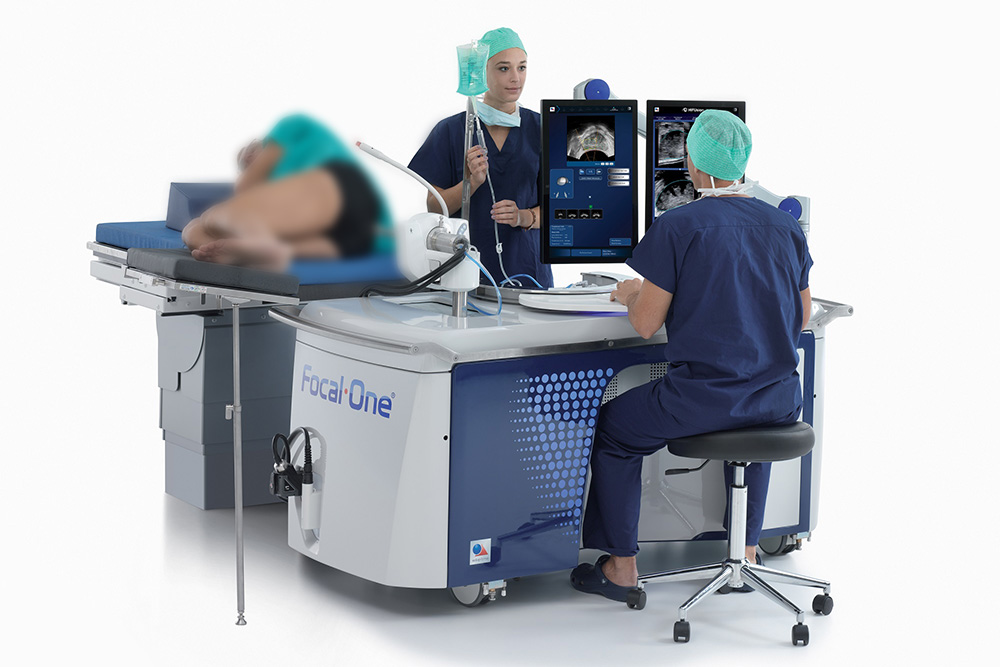A Non-invasive Treatment Backed By Technology
Dr Chong Kian Tai, Consultant Urologist from Surgi-TEN Specialists talks about focal therapy for early prostate cancer.
Catching It Early
Prostate cancer occurs when cells in the prostate gland grow out of control. In Singapore, it is now the second most common cancer among men, based on 2014 to 2018 data from Singapore Cancer Registry, heightening interest in the various treatment options in early stage prostate cancer that can reduce possible treatment-related side effects1.
Prostate cancer, especially in the early stages, often does not cause changes in the urinary or sexual function.
“Men may not have any urination problems or blood in the urine. In fact, most of them feel perfectly well, so unfortunately, prostate cancer may be detected much later,” said Dr Chong. In Singapore Cancer Registry data for year 2017, as much as 30.7 percent of Singapore patients are already in late Stage 4 cancer when they are first diagnosed2.
Testing men with no noticeable symptoms is one practical approach to detect prostate cancer in the early stages. This is done either through a blood test that looks for a protein called Prostate Specific Antigen (PSA), or a digital rectal examination, where a urologist feels the prostate gland for any unusual hard lumps or nodules.
Dr Chong advised that screening is not universally recommended in Singapore.
“PSA itself is not a 100 percent marker for prostate cancer, because the PSA blood test can show high levels even in condition such as an enlarged prostate (benign prostate hyperplasia) or when there is a prostate infection (prostatitis). So, it does not mean that someone with high PSA has prostate cancer,” he explained.
As the risk of developing prostate cancer increases with age, Dr Chong advised that men above the age of 50, especially those with a family history of such incidences, should test their PSA level.
“I recommend doing PSA blood test at least once when you are more than 50 years old. If the PSA is higher than normal, it is best to check with a specialist to find out if there is any necessity to continue checking for prostate cancer.”
Localized Treatment for Early Stage Prostate Cancer
Surgery and radiotherapy are well established ways to treat prostate cancer. However, these two options frequently come with a range of side effects, including difficulty in erection and urinary leakage that needs diapers, which will impact a man’s quality of life.
Another commonly prescribed option is active surveillance, which means monitoring the cancer growth and intervening when necessary. This, however, does not treat the cancer and therapeutic action is needed if the cancer worsens.
Focal therapy for prostate cancer is another option to consider for Stage 1 and Stage 2 prostate cancer. Focal therapy uses high intensity focused ultrasound (HIFU) to heat up and destroy cancer cells in the prostate by directing ultrasound waves to treat the cancerous areas, while at the same time, preserving the healthy part of the prostate3.
Although HIFU has been available for more than 20 years, technological advancements with newer machines are more accurate and effective, which will result in better outcomes and fewer side effects.
During Treatment and Prognosis
Focal therapy in Singapore, using Focal One HIFU machine, is a day surgery procedure that is performed by certified and experienced urologists. It is done under general anesthesia and lasts between 30 minutes and 2 hours, depending on the areas and amount of prostate cancer. There are no surgical cuts or radiation during the procedure. Many patients can even go home on the same day.
“After treatment, most patients will have a bit of discomfort when they pass urine, and some blood in the urine due to the treatment’s effects. But generally, most patients will recover after 2 to 4 weeks,” Dr Chong explained.
According to medium-term studies, 80 to 90 percent of recovered patients remain cancer-free in the next 5 years. More than 95 percent of patients also do not have urine incontinence after the treatment. For the minority of patients who relapses, focal therapy can be repeated in selected patients, or they may opt for surgery or radiotherapy.
Follow-up tests using PSA and magnetic resonance imaging (MRI) prostate scan will be done so that the medical specialist can monitor treatment outcome. Majority of patients should expect a good prognosis.
Considerations about Focal Therapy for Prostate Cancer
According to Dr Chong, focal therapy is not necessarily suitable for all patients with early stage prostate cancer. Important factors to consider before focal therapy are, prostate cancer stage, area and volume of tumour. It is usually more suitable for Stage 1 and Stage 2 prostate cancer that is still within the prostate for better treatment outcome.
“Whether it is active surveillance, robotic surgery, radiotherapy or focal therapy, the most important step is to discuss with your specialist to find out which treatment options are suitable for you,” Dr Chong advised.
For more information on Focal Therapy treatment by our certified and experienced urologists at Surgi-TEN Specialists, kindly reach us at:
References:
- Straits Times. 2017. Breast, prostate cancers rising sharply in Singapore. Retrieved from: https://www.straitstimes.com/singapore/health/breast-prostate-cancers-rising-sharply-in-spore
- Singapore Cancer Registry. November 2019. 50 Years of Cancer Registration. Retrieved from: https://www.nrdo.gov.sg/publications/cancer
- Focused Ultrasound Foundation. 2020. Prostate cancer. Retrieved from: https://www.fusfoundation.org/diseases-and-conditions/oncological/prostate-cancer
At U.S.A, Los Angeles
On 22 – 24 September 2022


